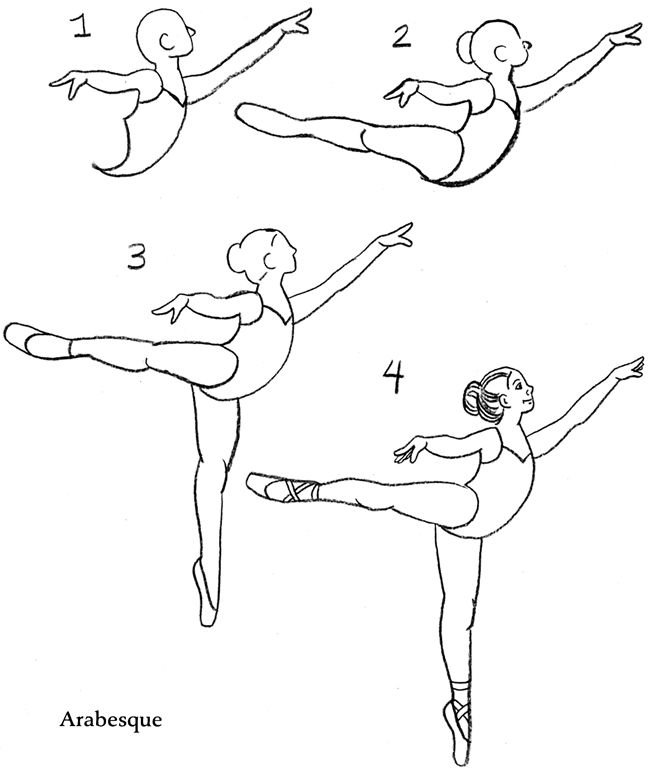How much money do gogo dancers make
8 things to know when considering becoming a go-go dancer
Go-go dancing might seem like an easy job. You just get in front of people at a club or party and dance, right? Wrong. There is so much more to it than just moving around. As a former go-go dancer I learned the hard way that it takes more than just looks and moves to succeed. But after figuring it out. I made good money and enjoyed the experience. Here’s what you need to know before becoming a go-go dancer.
1.Train for the Job
Dancers can dance up to 4 hours at a time. Cardio workouts help build endurance. Photo credit: Jeraldine Ramos
Practice dancing and do lots of cardio. Endurance is needed because go-go dancing involves dancing with high energy for long periods of time. If you’re not used to this type of physical workout you’ll tire out easily. You also might also have difficulty breathing and wake-up sore the next day.
2. Take dance classes
Youtube videos are very helpful when learning how to dance or new dance moves. Photo credit: Jeraldine Ramos
In go-go dancing you don’t get to choose what music you are dancing to. The DJs play whatever music they want depending on how the crowed reacts to the mix. The music may change tempo and even style. A go-go dancer must be able to improvise moves depending on the music that is being played. Dance classes or even watching Youtube videos can help you learn different ways to move your body and how to dance to different tempos without looking silly.
3. Connect with go-go groups
Diable Chaton (El Paso/ Las Cruces go-go group) and I, go-go danced when Kaskade a well known music producer and DJ came to The Plum City Lounge in El Paso, Tx. Photo by Mario Arizpe
Go-go groups help dancers find gigs. Check out the go-go groups in your local area, through Facebook, Twitter, and Instagram. What they post online can give you a glimpse on what type of venues they perform in, if they get a lot of gigs and if they perform for well-known DJs. Pictures can also show you what types of work they do so you can know what to expect. You don’t have to connect with a group. You can work as an independent go-go dancer and track down jobs on your own.
Pictures can also show you what types of work they do so you can know what to expect. You don’t have to connect with a group. You can work as an independent go-go dancer and track down jobs on your own.
4. Think like a businessperson
Knowing how to negotiate can get you high paying gigs. I was once paid $100 for thirty minutes of dancing through negotiating. Photo credit: Jeraldine Ramos
When considering a job you need to know how to negotiate your pay according to how much you will be working and how much you will need to be investing in costumes, hair and make-up. Get everything in writing. Having a written contract helps make sure you get paid for services provided. Go-go dancers can earn between $10 to $100 an hour depending on what they negotiate. I have been able to get high paying gigs through negotiating.
5. Promote yourself and the venue
Promoting can not only get people to go to the venue but also get you more jobs while establishing yourself as a go-go dancer. Photo credit: Jeraldine Ramos
Photo credit: Jeraldine Ramos
You can promote yourself and the venue using social media sites like Facebook and Twitter. Letting people know what days you are available for bookings and when and where you will be dancing is one way of promoting yourself. Promoting yourself and the venue can help you establish your name in the industry and possibly get you more jobs because it shows you can help bring in a crowd.
6. Be Creative
Venues like creativity. I have created many looks from adding gems to my face to doing my make-up like a doll. Photo by Mario Arizpe
With go-go dancing you must be creative. Go-go dancers are often asked to create themes and dress accordingly for an event the venue is promoting. You can get creative through costumes, make-up, and hair styles. Use the Internet to look up pictures for inspiration or watch a video tutorial on how to do your make-up or costume.
7. Be aware of your surroundings
It is important to be aware of your surroundings when people are drinking. People can become violent and if you are drinking it can be easy for one to slip in a drug into your drink. Photo credit: Jeraldine Ramos
People can become violent and if you are drinking it can be easy for one to slip in a drug into your drink. Photo credit: Jeraldine Ramos
In most venues alcohol will be sold. This means that there might be some drunks that will be disrespectful. And, if you are drinking along with the patrons it can be very easy for someone to drug you. Make sure you know where the nearest bouncers are in order to signal them when someone gets out of hand or if you feel uncomfortable. Be sure to never let your beverage or water bottle out of your sight. Don’t take a drink from anyone you don’t know. Instead insist on being served only by the bartender or event organizers.
8. Have fun and smile
Smiling and having a good-time sets the mood of venue which can make it look like people are enjoying themselves. Photo by Mario Arizpe
Go-go dancers put the energy in the party. Not smiling puts out the vibe that you are not having fun and can make people leave. People come out to enjoy themselves so be sure to keep their spirits up. Besides, why not have fun when you are dancing!
Besides, why not have fun when you are dancing!
Go-Go Dancer - Salary, How to Become, Job Description & Best Schools
How to Become a
The complete career guide to be a Go-Go Dancer: salary, job growth, employers, best schools, and education you may need to get started.
Why We Love It
Go-go dancers work for bars, casinos, nightclubs, and other venues where dancing is a major component of the entertainment provided. They dress up in costumes, wear provocative clothing, and dance to many different types of music to entertain crowds and get people in the mood to join in on the dancing.
What is a Go-Go Dancer?
The following job responsibilities are common for individuals in go-go dancer roles:
- Perform a variety of dances to entertain crowds and encourage dancing at nightclubs, bars, concerts, and other venues where music is a major component of entertainment
- Dance for long periods of time while working
- Design creative costumes—outfits, makeup, and accessories—for performances
- Audition for go-go dancing opportunities
- Promote performances to draw crowds and grow followings
A Day in the Life
Go-go dancing is often confused with exotic dancing, though the two roles are very different. First, go-go dancers generally do not take their clothes off when dancing. They don’t do lap dances or work for tips. The main role of a go-go dancer is to entertain crowds and get people in the mood to get out on the dance floor and join in on the fun. They are promoters and entertainers that perform at nightclubs, bars, casinos, concerts, and raves. They do not work in strip clubs.
First, go-go dancers generally do not take their clothes off when dancing. They don’t do lap dances or work for tips. The main role of a go-go dancer is to entertain crowds and get people in the mood to get out on the dance floor and join in on the fun. They are promoters and entertainers that perform at nightclubs, bars, casinos, concerts, and raves. They do not work in strip clubs.
Most go-go dancers are professionally-trained, career dancers. Before performances, they put together their costumes, do their makeup, and choose their accessories. In some venues, they may have designated uniforms, but in others, their goal is to find creative, provocative, and eye-catching costumes that will draw the attention of the crowd and get people in the mood to dance and have a good time.
Go-go dancing can be hard work. Dancers usually perform for 30 minutes to an hour at a time, take a short break, and then start dancing again. While they may have an idea of the type of music the DJ is going to play, the specific songs and beats are usually a surprise, so most of them are trained in a variety of dance styles so they can continue dancing appropriately regardless of what song starts playing. They also promote themselves and their careers by advertising their events and trying to grow followers. This helps prove their ability to draw a crowd when auditioning for new positions.
They also promote themselves and their careers by advertising their events and trying to grow followers. This helps prove their ability to draw a crowd when auditioning for new positions.
Typical Work Schedule
Most go-go dancers work evening and weekend shifts; they need to be available at hours when people are out in the world drinking and having a good time. Generally, they only work part-time.
Typical Employers
Some go-go dancers are hired by DJs to perform in a series of shows to help get the crowd in the mood to dance. Others work for nightclubs or casinos and are employees of the companies they work for. Some are hired by entertainment providers and work in multiple venues as needed. Finally, some find their own work and spend time auditioning for different groups, venues, and opportunities.
How To Become a Go-Go Dancer
Higher education is not required to become a go-go dancer, though many go-go dancers do have formal dance training. For most roles, only a high school diploma is required. Some go-go dancers learn to dance by taking dance lessons as children and adolescents, and they apply the skills they learned while studying dance in their youth to work as go-go dancers as adults. Others may have just studied dance on their own, or may have natural dancing talent with no formal education.
For most roles, only a high school diploma is required. Some go-go dancers learn to dance by taking dance lessons as children and adolescents, and they apply the skills they learned while studying dance in their youth to work as go-go dancers as adults. Others may have just studied dance on their own, or may have natural dancing talent with no formal education.
Many go-go dancers find work simply by asking other go-go dancers if they can audition. Entertainment groups, DJs, nightclubs, and casinos are frequently looking for additional dancers. Speaking with another go-go dancer may land aspiring go-go dancers an audition, and if they’re willing to get up on stage and look good dancing, they can land recurring positions at the venues they auditioned for. Other go-go dancers take a more formal approach and apply for open positions that were formally advertised.
Unfortunately, a career in go-go dancing has a time limit. For most, the work is too hard to continue after a certain age. Because of this, many go-go dancers work towards a bachelor’s degree in theater, arts, or dance. With a bachelor’s degree, they can qualify to work as dance instructors later in life when go-go dancing gets to be too hard on their bodies. Because these dancers get professional training while studying for a degree, they can qualify to teach a variety of dance styles.
Because of this, many go-go dancers work towards a bachelor’s degree in theater, arts, or dance. With a bachelor’s degree, they can qualify to work as dance instructors later in life when go-go dancing gets to be too hard on their bodies. Because these dancers get professional training while studying for a degree, they can qualify to teach a variety of dance styles.
Go-Go Dancer Salary Data
We’ve provided you the following to learn more about this career. The salary and growth data on this page comes from recently published Bureau of Labor Statistics data while the recommendations and editorial content are based on our research.
National Anual Salary
Low Range
---Average
---High Range
---National Hourly Wage
Low Range
$9/hrAverage
$18/hrHigh Range
$33/hrHow do Go-Go Dancer salaries stack up to other jobs across the country? Based on the latest jobs data nationwide, Go-Go Dancer's can make an average annual salary of ---, or $18 per hour. This makes it an Above Average Salary. On the lower end, they can make --- or $9 per hour, perhaps when just starting out or based on the state you live in.
This makes it an Above Average Salary. On the lower end, they can make --- or $9 per hour, perhaps when just starting out or based on the state you live in.
Salary Rankings And Facts
Highest Education Among Go-Go Dancers
- 0.5% Doctorate
- 4.3% Masters
- 17% Bachelors
- 10.6% Associates
- 29% College
- 26.7% High School
- 11.9% Less than High School
Job Growth Projections and Forecast
2014 Total Jobs
13,0002024 Est. Jobs
13,600Job Growth Rate
4. 6%
6% Est. New Jobs
600How does Go-Go Dancer job growth stack up to other jobs across the country? By 2024, there will be a change of 600 jobs for a total of 13,600 people employed in the career nationwide. This is a 4.6% change in growth over the next ten years, giving the career a growth rate nationwide of Below Average.
Growth Rankings And Facts
What Companies Employ The Most Go-Go Dancers
| Industry | Current Jobs | New Jobs Needed | % Increase |
|---|---|---|---|
| Self-employed workers | 2,000 | 100 | 0% |
| Drinking places (alcoholic beverages) | 1,700 | --- | --- |
| Other schools and instruction; private | 900 | 200 | 0% |
Want To Be a Go-Go Dancer? Get Started!
Generate your free SmartPlan™ to identify colleges you like, and potential ways to save on a degree or certification program toward your career with courses, offers, and much more!
Enroll Now and Get Started
or Learn More →
Average Salary in Germany - What are the Income in Germany
Average salary in Germany for 2019. How much do representatives of different professions earn on average in Germany.
How much do representatives of different professions earn on average in Germany.
Salary in Germany
The average monthly salary of a German full-time worker in 2019 is 3880€ gross without bonuses and overtime pay.
Let's define that for comparison of incomes the monthly or annual payment for work on hire is accepted as a basis. Hourly wages or profits of legal entities are not included in the statistics.
In German, salary - Gehalt - remuneration received by employees on a monthly basis.
The main problem of finding out the level of wages in Germany - Germans are extremely reluctant to share this information . In private conversations, asking colleagues about income is expressly prohibited by contracts in many firms. It is unlikely that acquaintances will be able to talk about this topic. Even when vacancies are published, the salary is usually not indicated, but is negotiated separately at the interview. As a result, those sitting at neighboring tables in the office, with almost the same indicators, can earn differently, and significantly.
As a result, those sitting at neighboring tables in the office, with almost the same indicators, can earn differently, and significantly.
It's good that there are data from the labor exchange, which are regularly published on the official website.
These are average values. In each case, the salary differs in one direction or another.
The next source is websites that collect income information anonymously. People share information on the condition of anonymity, everything is entered into a common database, which makes it possible to calculate certain average values for various parameters. Relying on such data is not particularly worth it. No one checks the accuracy of the information entered.
For those who work in Germany (or plan to work here), there is a good way to find out the approximate salary level for their situation. The service is in German, but the main thing is to know the name of the profession - in order to choose the right specialty from the list. The service is free, but it requires you to leave an email and subscribe to the newsletter, from which you can unsubscribe immediately after receiving the result. So, follow the link
The service is free, but it requires you to leave an email and subscribe to the newsletter, from which you can unsubscribe immediately after receiving the result. So, follow the link
Gehalt-Check
Next, step by step, enter your age, gender, level of education, whether you work now, profession, managerial position, index of the city in Germany to which the check belongs - and email. You receive a letter containing a link to a page with results and, interestingly, with vacancies that match the specified conditions.
Separately, for migrants, I note: often the earnings of foreigners are lower than those of German colleagues , simply because otherwise why hire a foreigner? The reason is not only differences in qualifications or more working hours per week. Large differences in wages are noticeable even among professionals who are at the same level in experience and education.
When comparing German salaries, for example, with Russian ones, keep in mind that in Germany the amount before taxes is indicated in the contract . First of all, it is interesting how many people get their hands on it. For a complete understanding of wages in Germany, it is necessary to understand how the net is calculated from the German gross salary, as well as get more statistics.
First of all, it is interesting how many people get their hands on it. For a complete understanding of wages in Germany, it is necessary to understand how the net is calculated from the German gross salary, as well as get more statistics.
In the countries of the former USSR, as a rule, the employer names the amount that the employee receives in his hands, and pays taxes and social contributions additionally. If you mentally add to Russian earnings the costs incurred by the employer, the contrast with German incomes will not be so striking.
In Germany, a person is considered to be below the poverty line if their income is 60% of the average monthly income in the country.
Dependence of income on specialty
Profession - the main criterion for the level of remuneration.
Higher education in Germany does not guarantee a high salary. But in general, in comparison with other groups of workers, on average, university graduates earn more.
If German students chose their future profession solely on the basis of income, the choice would be obvious - an engineer, a doctor or a lawyer.
| Specialty | Average annual gross income |
|---|---|
| Medicine | 79538€ |
| Law | 74013€ |
| Engineer | 70288€ |
| Programming | 68133€ |
| Natural sciences | 66954€ |
| Economy | 65404€ |
| Architecture | 55822€ |
| Psychology | 55204€ |
| Geology and other geosciences | 53713€ |
| Politics and society | 52974€ |
| Pedagogy | 50000€ |
| Philosophy | 47022€ |
| History and culture | 46836€ |
| Design | 46075€ |
| Child rearing, social pedagogy | 45116€ |
Doctors in Germany receive more than 5700 per month
The statistics do not give an accurate idea of income above 5700€, as it is collected by the amount of pension contributions, which grow only up to a certain limit, and then remain fixed.
In addition to the above professions, management companies and other managers could have come to the first lines, but there the connection with the specialty in the diploma is not so obvious.
Worse than other holders of higher education in Germany, linguists and sociologists earn. Linguists have a problem with a large number of applicants: there are 25 unemployed for one open vacancy.
Wages do not always determine supply and demand. Yes, in the industrial sector, the lack of specialists has a positive effect on the income of workers, but the situation is different in the civil service.
For example, the situation with social workers. They can often only find a job in the civil service, averaging €3,750 gross. At the same time, due to the influx of refugees in Germany, for every 100 unemployed with a degree in social sciences, there are 92 vacancies.
Occupations not requiring higher education
To get a decent salary in Germany, it is not necessary to have a university degree. Statistics show that among professions requiring secondary education, there are enough of those that allow you to earn at the level of higher education holders.
Statistics show that among professions requiring secondary education, there are enough of those that allow you to earn at the level of higher education holders.
And here there are clear leaders - this applies primarily to aviation.
A clerk in a bank or an important account manager in a German trading company in the first 3 years after graduation receives an average of bachelor's level.
| Occupation | Gross salary per year |
|---|---|
| Air traffic controller | 67558€ |
| Pilot | 62986€ |
| Key account manager | 39540 |
| Logist | 39175€ |
| Clerk in a financial institution | 38084 |
| IT consultant | 37083€ |
| Programmer after Ausbildung | 35006 |
| Insurance agent | 34436€ |
| Employee in an insurance company | 33905€ |
| Machine dealer | 33693€ |
| Production Designer | 33682€ |
| Builder | 33152€ |
| Draftsman | 31894€ |
| Locksmith | 31405€ |
Secondary vocational education in Germany often allows you to earn no worse than higher education holders.
The lowest wages in Germany for beauticians, hairdressers, waiters.
| Occupation | Annual income in € |
|---|---|
| Cosmetologist | 21820 |
| Hairdresser | 21832 |
| Waiter | 22628 |
| Baker | 23649 |
| Dental technician | 23682 |
| Dental assistant | 23763 |
| Call center employee | 24200 |
| Receptionist | 24216 |
| Chef | 24540 |
| Sales Consultant | 24999 |
| Optic | 25313 |
| Physician assistant | 25393 |
| Auto mechanic | 25795 |
| Legal assistant | 26000 |
| Physiotherapist | 26165 |
| Travel agency employee | 26268 |
Dependence of payment on activity
Wages in Germany are highly dependent on the German industry branch in which the firm does business. There are traditionally more "rich" money directions, where the mere belonging to the labor market forces you to pay more, because otherwise good specialists will be taken away by competitors.
There are traditionally more "rich" money directions, where the mere belonging to the labor market forces you to pay more, because otherwise good specialists will be taken away by competitors.
| Monthly pay | Field of activity |
|---|---|
| 5338€ | Finance and insurance |
| 5126€ | Information technology |
| 5041€ | Energy |
| 4900€ | Freelancers |
| 4367€ | Education and teaching |
| 4128€ | Real Estate |
| 4092€ | Mining |
| 4024€ | Arts, entertainment, recreation |
| 4012€ | Industry |
| 3893€ | Medicine |
| 3636€ | Trade |
| 3444€ | Water supply |
| 3219€ | Construction |
| 3055€ | Transport, logistics |
| 2425€ | Hotel business |
Firm size has a significant impact on the average income of workers in Germany.
- 1-20 persons - 36165€
- 21-50 - 40867€
- 51-100 - 43204€
- 101-1000 - 49451€
- >1000 - 61108€
Therefore, when looking for a job in Germany, keep in mind that in large companies, a potential candidate has the right to hope for a higher pay.
Comparison of wages for men and women
Anyone who is at least a little interested in Germany probably knows that feminism is firmly on its feet here and politicians are fighting for gender equality as if the onset of a brighter future depends on it. However, the fact remains that women earn on average 21% less per hour than men. The wage gap between German men and women is one of the largest in the European Union.
The gap between the wages of women and men in Germany is narrowing very slowly.
Over the years, this difference is gradually decreasing, but the rate is extremely low. The problem here is not so much in inequality, but in the fact that women usually work part-time . Without being present 40 hours a week at work, it will be extremely difficult to talk about a promotion with your boss. In addition, the accumulation of experience is slower. Well, women themselves are often more interested in the availability of a job than in the growth of their wages, so they do not particularly apply for an increase. There are also enough careerists among German women, but in general the picture is this.
The problem here is not so much in inequality, but in the fact that women usually work part-time . Without being present 40 hours a week at work, it will be extremely difficult to talk about a promotion with your boss. In addition, the accumulation of experience is slower. Well, women themselves are often more interested in the availability of a job than in the growth of their wages, so they do not particularly apply for an increase. There are also enough careerists among German women, but in general the picture is this.
In 2017, Germany passed a law allowing employees of enterprises with more than 200 employees to request information on the salaries of colleagues in comparable positions. And firms with more than 500 employees are required to regularly publish data on the average salary for all positions. According to the government, these measures will allow women to gain more arguments in a conversation with the boss about wage increases. In turn, the authorities, by publishing such data, can slow down the growth of incomes for men.
In Germany, men earn higher wages on average
Dependence of wages on age
Intuitively, the older a person gets, the more experience he accumulates and the higher the income. It makes no sense to draw a direct dependence of wages on age in Germany - no one pays workers more, just because they are older. But an indirect relationship between experience and income can be traced.
| Age | In age group |
|---|---|
| 20 | 30025€ |
| 25 | 36956€ |
| 30 | 42170€ |
| 35 | 46542€ |
| 40 | 48424€ |
| 45 | 48958€ |
| 50 | 49660€ |
| 55 | 49823€ |
| 60 | 50064€ |
Dependence of German wages on the region
Looking at the place of residence, the highest wages in Germany are paid in Hesse, which is not surprising. There is Frankfurt am Main - the European financial center. Slightly less on average earn in Baden-Württemberg, Bavaria and Hamburg. The lowest level of earnings in the states of eastern Germany. Capital Berlin is in this plan approximately in the middle.
There is Frankfurt am Main - the European financial center. Slightly less on average earn in Baden-Württemberg, Bavaria and Hamburg. The lowest level of earnings in the states of eastern Germany. Capital Berlin is in this plan approximately in the middle.
| Ground | As a percentage of the average German |
|---|---|
| Hesse | 114.1% |
| Baden-Württemberg | 108.6% |
| Hamburg | 105.9% |
| Bavaria | 105.1% |
| North Rhine-Westphalia | 100.8% |
| Rhineland-Palatinate | 98.3% |
| Bremen | 95.8% |
| Saarland | 95% |
| Berlin | 94.5% |
| Lower Saxony | 91.8% |
| Schleswig-Holstein | 88.3% |
| Thuringia | 81% |
| Saxony | 79. 9% 9% |
| Brandenburg | 78.9% |
| Saxony-Anhalt | 78.9% |
| Mecklenburg-Vorpommern | 75.9% |
Dynamics of salary growth in Germany
On average, incomes of Germans grow by 2-3% annually. Such growth covers inflation, because prices also rise by about this amount, which is completely normal for the capitalist model of the world.
| Year | Gross |
|---|---|
| 2018 | 35380€ |
| 2017 | 34306€ |
| 2016 | 33396€ |
| 2015 | 32486€ |
| 2014 | 31600€ |
| 2013 | 31089€ |
| 2012 | 30432€ |
| 2011 | 28333€ |
| 2010 | 27997€ |
| 2009 | 27728€ |
| 2008 | 27827€ |
| 2007 | 27196€ |
| 2006 | 26765€ |
It is even more interesting to look at the dynamics of the net income of burghers.
| Year | Net |
|---|---|
| 2018 | 23345€ |
| 2017 | 22652€ |
| 2016 | 22162€ |
| 2015 | 21607€ |
| 2014 | 21134€ |
| 2013 | 20594€ |
| 2012 | 20212€ |
| 2011 | 19729€ |
| 2010 | 19240€ |
| 2009 | 18498€ |
| 2008 | 18479€ |
| 2007 | 18161€ |
| 2006 | 17981€ |
Examples of German salaries for specific occupations
Civil servants
Policeman - 2800-4059€
Police service (Polizist) in Germany takes place in various types of police, from service at the city station to the criminal department. The salary of a German policeman is highly dependent on the specific position and class.
Depending on the direction of service (Laufbahn), the requirements for those wishing to become police officers are different, but in general, the absence of offenses, an impeccable reputation, good physical shape and psychological stability are required. School grades play a big role when you want to become an investigator or forensic scientist.
Police officers in Germany are paid decent salaries up to €4000 gross per month.
Soldier - 2210-3486€
Germany has a professional army, therefore, any soldier (Soldat) has a salary, like other professionals.
Physically healthy, psychologically stable young people are chosen to replenish the ranks of the Bundeswehr. However, the army also requires other specialists, ranging from plumbers to programmers, so in principle anyone can become a military man in Germany if he can fulfill the admission standards.
The salary of the military depends on the length of service, position, rank and availability of military specialties.
White collar - office workers
Judge - 4187-6449€
In order to work as a judge in Germany (Richter), you need to graduate from a university, pass a state exam, then go through two or three years of training, pass two more exams, and then you can start working with a probationary period of two years, during which you are constantly threatened with removal from office at any time and without explanation.
It goes without saying that judges must be independent, including financially, so the salary of the arbiter in Germany is much higher than the average.
Lawyer - 2248-4444€
To work as a lawyer in Germany (Anwalt), you will have to get a higher education in the field of law and pass a state exam. Then you need to pass the practice (Referendar), which ends with the second state exam.
A lawyer is most often employed in a lawyer's office until he starts his own business as a self-employed person. It is also possible to get a job in various companies that provide legal services, checks of contracts and other documents. It will not be superfluous to have a lawyer in a company earning in the field of production or trade.
It will not be superfluous to have a lawyer in a company earning in the field of production or trade.
Work of a lawyer - consultations in the field of legislation, preparation of lawsuits, protection of the client's interests in court.
Tax consultant - 4552-7206€
Tax consultants (Steuerberater) in Germany is one of the most prestigious professions. The process of learning in the field of taxes is complex - endless study of laws, rules, filling out forms will require attentiveness, concentration and perseverance.
Tax consultants work as private entrepreneurs, in tax consultations, or as employees in large companies.
The main activity of tax consultants in Germany is assistance in filling out tax returns for individuals and financial reporting for companies.
Accountant - 2977-4064€
Accounting (Buchhalter) is not a separate profession in Germany. The specialty is obtained in courses or as part of another educational process, for example, in the course of training as a tax consultant.
In German companies, bookkeeping is rarely done by a single employee. The person who is engaged in maintaining financial statements has a lot of other responsibilities.
Small firms do not have an accountant on staff, but resort to the services of external consultants, hiring them on an hourly basis when necessary. In Germany, accountants are often entrepreneurs serving several firms at once.
Interior designer - 2350-3419€
Interior designers (Innenarchitekt) - a profession at the intersection of architecture, materials science and art. The task is to design the room in such a way that it is practical, safe and beautiful.
Very often it is the latter that influences the salaries of interior designers the most. The ability to create beauty without forgetting about reliability and practicality will allow you to accumulate an impressive portfolio.
There are two ways to obtain the title of Innenarchitekt - through direct study at a university, or as an additional title for sculptors or artists, acquired through practice and theoretical studies.
Musician - 2479-5017€
A musician in Germany (Musiker) often works as a self-employed person. The basis of income is teaching children to play musical instruments, performing in orchestras or groups.
For thousands of hours of study at a music school or university, a professional gets the opportunity to work on the special status of Freiberufler - as a free worker, which leads to significant tax benefits.
It is clear that the size of a musician's earnings depends on personal professional qualities and the ability to devote himself to his work.
The earnings of a musician in Germany are unstable and rarely tied to employment.
Notary - 1919-3035€
Notary (Notar) acts as an intermediary in the conclusion of serious transactions, certifies copies and translations of documents.
In Germany, this work is combined with other legal activities. Of the 6,000 notaries in Germany, 75% are simultaneously practicing law.
Training for the profession of a notary lasts 3 years and allows you to work only in this specialty. But you can get permission to conduct notarial activities to any lawyer who meets the required conditions: legal education, 5 years of work experience, an exam.
But you can get permission to conduct notarial activities to any lawyer who meets the required conditions: legal education, 5 years of work experience, an exam.
Secretary - 2003-3071€
The secretary (Sekretär), and more often the secretary (Sekretärin), is responsible for supporting the boss in organizing work activities. Papers, planning meetings and business trips, other "turnover" - this is the responsibility of the secretaries.
There is no separate education for the profession, usually specialists in the organization of office work - Bürokaufmann / -frau work in positions.
Excellent knowledge of the language, and not only German, is practically necessary.
Social worker - 2490-3300€
Social workers (Sozialarbeiter) work in Germany in orphanages and nursing homes, care centers for the helpless and shelters for the homeless, support the disabled and the elderly.
Social workers can find employment in government agencies, medical facilities, legal clinics, and emergency services.
Vocational training in the specialty takes 3 years, after which it is necessary to pass the state exam. Candidates will need excellent knowledge of German, resistance to stressful situations, as well as the ability and desire to communicate with people.
Medical professions
Nurse - 2309-3146€
There are several names for the nursing profession in Germany - Krankenpflegerin, Krankenschwester or Pflegefachkraft.
The essence is the same - after three years of training in basic medical skills and nursing, you can go to look for work in a hospital, clinic, nursing home and other places where hard work is required for those in need of help.
Although the profession is responsible and very difficult, nurses and brothers do not earn much. There are not enough people who want to earn a living in this specialty in Germany, so there is an acute shortage of workers in the field of patient care.
There are many foreigners among the medical staff in Germany. Earnings do not inspire Germans, but attract immigrants.
Earnings do not inspire Germans, but attract immigrants.
Care Manager - 3072-4204€
Germany has a well-developed network of special services that support people in difficult times of life when they become helpless due to illness or accidents (Pflegedienst). Orderlies work in this service, and managers - Pflegedienstleitung manage.
The task of the head of the service is to organize the work of subordinates.
Due to a shortage of workers, managers often have to act as orderlies themselves and look after the wards. This position is mainly filled by experienced workers who have spent thousands of hours in the role of a nurse or assistant.
Nurse - 2380-3688€
Nurse (Pfleger) is one of the most sought-after professions in Germany. Caring for the helpless sick, the disabled, and the elderly requires special qualities that not everyone possesses.
You need to be physically strong and healthy, as you will have to lift and carry a lot of those who are not able to walk themselves. Possess a lot of knowledge of a medical and domestic nature, so as not to harm the wards. We must not forget about human qualities in order to take care of people in the most difficult periods of life. Moral stability is a must!
Possess a lot of knowledge of a medical and domestic nature, so as not to harm the wards. We must not forget about human qualities in order to take care of people in the most difficult periods of life. Moral stability is a must!
To work as a nurse in Germany, you need to get a vocational education and pass a state exam. This is one of the few professions that a migrant without a higher education, but with a medical secondary education, can take, although this will require at least a year of work as a trainee.
Physiotherapist - 1907-2507€
Physiotherapist (Physiotherapeut) in Germany is educated in 3 years. Its task is to help people recover from injuries or develop the physical abilities of the disabled through exercise, gymnastics and massage.
This specialty allows you to work in clinics and rehabilitation centers. Also, the services of a physiotherapist may be needed in a hotel with a SPA service, in a sports club or fitness center.
The highest earners are good physiotherapists who open their own private offices where they see patients on prescription and carry out prescribed procedures.
Ergotherapist - 1979-2706€
Ergotherapeut (Ergotherapeut) - a specialist in the rehabilitation of sensory motility, reaction, sense of touch. His job is to help recover from severe injuries associated with partial or complete loss of coordination. Occupational therapists also work with people with disabilities, trying to develop their weaknesses through games and exercises.
Usually a profession is obtained through a three-year training process in vocational schools. There is also an opportunity to get higher education in this specialty.
Occupational therapists usually work in their clinics, as private entrepreneurs or assistants, as well as in large rehabilitation centers, as employees.
Pharmacist - 2520-2998€
A pharmacist (Pharmazeut) in Germany works in the development, research and production of medicines. Also, pharmacists often take a place at the counters of pharmacies, as workers well versed in medical preparations.
You can also find a place in government agencies involved in the admission of drugs to the market and conducting testing.
In terms of education, this is usually secondary vocational education for 3 years, but there is also a higher education that allows you to work in research areas.
Apothecary - 2518-2984€
Apothecary (Apotheker) in Germany is not the one who sells drugs in a pharmacy, but the owner of the pharmacy itself. Although nothing prevents pharmacists from working in other areas of pharmaceuticals, from the production of medicines to marketing.
After graduating as a pharmacist, you must complete another year of practice - Approbation - to obtain the status of a pharmacist. You can then choose whether to open your own business or join an existing one.
Blue collar workers - blue collar workers
Confectioner - 1510-2264€
Konditor bakes various sweets. To work, you will have to undergo serious professional training for three years and pass the state exam.
Confectioners work in bakeries, cafes and restaurants, sometimes in hotels with a large number of guests, as well as in enterprises producing sweet pastries.
It's a pretty hard job with the need for night shifts, but the salaries of confectioners in Germany are not the highest.
Confectioner is one of the lowest paid professions in Germany.
Painter - 2044-2694€
The painter (Maler) is engaged in exterior and interior painting of buildings. It sounds very simple, but in fact, the correct high-quality interior decoration is a whole science!
The painter's training lasts three years, most of the time is spent on practical activities. You will have to master the painting and varnishing of various materials, study the impact of the external environment and many other aspects of work.
We must not forget about the creative component of the profession, because in the end the goal of the painter is to make it beautiful!
Carpenter - 1929-2615€
Carpenter (Zimmerer or Zimmermann) - a profession so ancient that it now seems even outdated. But if you think about it, woodworking is still relevant!
Roof framing, doors, wooden furniture, fences, interior decoration and many other things require the processing of wooden materials, which means that the carpenter's hands are still valuable.
Professional training lasts 3 years. A funny detail - they prefer to take physically strong guys with strong backs as students, since in work they often have to lift and carry weights.
Plumber - 2130-3330€
Plumber (Installateur) in Germany is engaged in the installation and maintenance of various sanitary equipment: plumbing, sewerage, gas supply, and the like.
Training does not last 3 years and includes a large number of practical exercises.
Electrician - 2354-3356€
Electricians (Elektriker) are responsible for the assembly, repair and maintenance of electrical networks.
Education in Germany lasts three and a half years, usually theory is combined with active practice.
Recently, the profession has been renamed Elektroniker, expanding the scope of work towards the infrastructure of information systems, telephone networks and other methods of data transfer.
Electrician - 2336-3352€
Electrical technicians (Elektroniker) work in Germany in a wide variety of branches. Energy, construction, industrial automation, other industries where electronic mechanisms need to be taken care of.
Energy, construction, industrial automation, other industries where electronic mechanisms need to be taken care of.
The training process for electrical engineering in Germany is usually limited to three to three and a half years.
Mechanical engineer - 3280-4859€
Mechanical engineer (Maschinenbauer) can work in Germany in the production, adjustment and repair of machine tools, robots and other industrial machines. There are many specializations for the profession.
Often, in addition to theoretical knowledge of mechanical engineering, mechanics also have quite practical skills, such as plumbing or welding.
The specific specialty of mechanics in Germany can be achieved in three years through a vocational education.
Specialties related to auto and transport
Car dealer - 2394-3934€
Car dealers in Germany (Automobilverkäufer) help customers choose the make and model of the car, advise on various issues of operation, place an order.
To become a car dealer in a German car dealership, you need a secondary education in the field of trade. Other technical automotive specialists can also retrain in the field of sales of automotive equipment. Autohouses first train salespeople for six months, of which at least 3 weeks are devoted to theory. To gain specialization in certain types of models or in various brands, employees undergo seminars.
The most important component of the work of a car seller is the ability to communicate with customers, inspire confidence and positive emotions.
Bus driver - 1901-2549€
In addition to holding the relevant German license categories, a bus driver (Busfahrer) in Germany must complete a vocational training course that lasts 3 years.
Just being able to turn the steering wheel is not enough! The driver must provide services to passengers, sell tickets, monitor the condition of the bus.
Bus driver's job is urban transport, intercity flights or school routes.
Subway driver - 1978-2719€
Train driver in the subway (U-Bahn-Fahrer) - a special case of a locomotive driver who is focused on working in the subway.
The task of the subway driver is to drive the train according to the schedule, control the disembarkation and embarkation of passengers, monitor the state of the train.
Work in the German underground is a prestigious, highly paid occupation that does not require a long process of obtaining an education.
Working as a subway driver in Germany has the advantage of a fast learning process.
Pilot - 4386-11139€
The profession of a pilot in Germany is in demand on passenger airlines, in the military and transport sectors.
Pilot training is linked to a specific company or organization in professional schools. Training is paid. To obtain a license to fly, you must listen to the theory, pass the practice and pass the exams. This will take two or three years. A pilot's license for a small motorized aircraft will cost around 20,000€.
Then you need to look for a job and not lose your skills - a simple pilot leads to the loss of a license. Whoever is lucky will be able to get a job in a big company, where they will pay for retraining. However, in Germany there is no shortage of pilots, many licensed do not progress beyond amateur flying at the air clubs.
Unskilled work
Maid - 1461-1699€
Cleaning women in hotels (Zimmermädchen) in Germany is one of the low-paid occupations that do not require high qualifications. Anyone can work as a maid.
However, hotel directors and recruiters started out as Roomboys. Having gained experience in the hotel business, seeing everything from the very bottom of the career ladder, it is easier to comprehend many details of hotel organization.
Hotel Administrator - 1748-2409€
The visiting card of the hotel is the person at the reception (Rezeptionist). In Russian, the name of the profession can most adequately be translated as "hotel administrator".
This is the person who meets, registers and accommodates guests, and also answers all possible questions related to staying at the hotel.
There is no training in schools for this profession in Germany. The receptionists willingly accept people who can work in offices or hotels, who know foreign languages, who can communicate and remember important things.
Waiter - 1515-2051€
To become a waiter (Kellner) in Germany education is not required, but only skill and quickness.
Students often work part-time as waiters. In the statistics, salaries are shown as if they work 8 hours a day and 40 hours a week. In fact, many do not work every day, so real wages are even lower.
And of course, tips are not included in earnings!
17-07-2019, Stepan Babkin
why artists from Russia and Ukraine go abroad. "Paper"
Models, dancers, musicians and singers from Russia leave to work in China: Europeans in Asia are offered salaries several times higher than in their homeland. According to the artists, their contracts allow them to earn from 900 to 2000 dollars a month, while housing and flights are usually paid by the employer or agent.
According to the artists, their contracts allow them to earn from 900 to 2000 dollars a month, while housing and flights are usually paid by the employer or agent.
Paper talked to Russians and Ukrainians who left to work in China about how the entertainment industry works there and why, despite high salaries, they do not want to stay forever in another country.
choreographer
Svetlana Kiryanova,
Education
English teacher
000
19000 9000 9000 9000 9000 9000 9000 9000 9000 9000 9000 9000 9000 9000 9000 9000 9000 9000 9000 9000 9000 9000 9000 9000 9000 9000 9000 9000 9000 2 process engineer and manager of foreign economic activity
About how they ended up in China
Anatoly Sukhanov: My first country was Turkey, I have been living in China for the last few years. I can’t even call it work, it doesn’t seem difficult for me to go on stage and dance a choreographic number of any complexity. First of all, for me it's just a journey and an opportunity to learn about a foreign culture. After that - a good income. I love art, beauty and living beautifully. And all this for me is combined in work abroad. Here people want and are ready to go to shows and performances, just to enjoy your appearance on stage.
First of all, for me it's just a journey and an opportunity to learn about a foreign culture. After that - a good income. I love art, beauty and living beautifully. And all this for me is combined in work abroad. Here people want and are ready to go to shows and performances, just to enjoy your appearance on stage.
Evgeny Sukhomlinov: For me, working in China means not only money, but also a wonderful climate, free schedule: it's just convenient for me to live here. The language barrier is very disturbing, so now I'm learning Chinese.
Yuri Malkov: China has a well-developed economy and is ready to pay professional artists for quality material. Unfortunately, recently a certain stereotype has appeared that second-class artists are hired to work in China, supposedly here you can do nothing and use your European appearance. This is not so, more precisely, there are a lot of bad artists here, but they are paid accordingly. From my own experience, I can say that if you show the Chinese people a quality show, then they become a very grateful audience. For me, China has become the place where I could realize myself as a producer and as a DJ.
For me, China has become the place where I could realize myself as a producer and as a DJ.
Olga Puzanova: I really enjoyed living in China. I like the feeling that for the Chinese we are aliens. They look at us, rejoice, ask to be photographed. They also perceive our work differently. I am touched by their naivete and simplicity.
Photo from the artists' archive
How the industry works
Anatoly Sukhanov: Before you go abroad as a dancer, you should decide on your level of training. Next, find a good contract so as not to fall into scammers, this is common. It is better to turn to more experienced acquaintances who will share contacts. Starting points could be China and Turkey. In Turkey, we had very difficult numbers. We performed Todes' shows, Madonna's show in the original, and much more.
Yuriy Malkov: If we talk about how the club business works, there are three models. First: work in a nightclub as a dancer (not go-go!), DJ, acrobat, singer. Second: day job as a model and artist of different genres. Third: what I do not accept, but it exists - consumption in karaoke. The girls accompany the Chinese, entertain them, drink at their expense, increasing the bar's revenue.
Second: day job as a model and artist of different genres. Third: what I do not accept, but it exists - consumption in karaoke. The girls accompany the Chinese, entertain them, drink at their expense, increasing the bar's revenue.
Finding a job here is easy, but if you are a professional, you can work anywhere in the world. And if you are a professional and ended up in China, then you can also get decent money for your work.
Oleg Mandrichenko: I see a lot of advantages in this work: in Ukraine, a person with a choreographic education cannot find this. Firstly, you immediately sign a contract with the agent, where your duties are clearly stipulated, you should not and cannot demand more from you. Secondly, in China they are ready to pay good money to dancers who work in theaters or amusement parks, because this is a show, a beautiful performance, costumes, which, in fact, the Chinese love. You can work in clubs, but it's dangerous. But it’s easy to get to work there, the main thing is appearance, but few people care about real choreographic training.
My salary here is four times more than in Ukraine. Another plus is free time, which you can devote only to yourself. We are busy about three or four hours a day.
Evgeny Sukhomlinov: In China, I first worked as a dancer in nightclubs, now as a team leader and singer.
Compared to Russia, the club industry here is completely different. If in our country people come to drink and dance on a day off, then in China the clubs are full seven days a week. The Chinese come to drink - drink a lot - and watch shows. They don't dance at all. Here the clubs have a slightly animated character. During the night, there can be several different performances on the stage.
For me, this is an almost perfect job, because every day I develop myself as an artist, I work with the public. I like that the Chinese appreciate this kind of work and are willing to pay big money to people of creative professions. In Russia, this was not, is not, and it is not known when it will appear. It is interesting to work here, but it is dangerous - there is some risk. You work in the club illegally and, in fact, you have no rights, so often artists are deceived, they are not paid money, they are left homeless.
It is interesting to work here, but it is dangerous - there is some risk. You work in the club illegally and, in fact, you have no rights, so often artists are deceived, they are not paid money, they are left homeless.
Marina Matlash: In Ukraine, I could find a job for myself in the dance field. Before the trip to China, she worked in a dance group, performed in Dnepropetrovsk at various events. But this is more work for an idea, you can’t earn money there at all. If you try to open your own dance school, you will face a lot of competition. This is now done by everyone who is not too lazy, and the quality of teaching suffers from this.
Svetlana Kiryanova: Working as a dancer abroad is always different. As my experience shows, in Turkey, the numbers are much more difficult, they take them there with high dance training, but the shows themselves are very interesting there. In China, it all depends on the contract you get. There are also interesting shows, constant rehearsals, crazy costumes. But sometimes it's just "two stomps, two slaps," because all that is required of you is a nice Slavic appearance.
But sometimes it's just "two stomps, two slaps," because all that is required of you is a nice Slavic appearance.
Photo from the archives of artists
About the decision to go abroad to work
Yuri Malkov: I went to China for the first time for six months with friends in 2012 and have been living here for three and a half years. The country received me well and, in my opinion, this is a great place to work for people with a creative occupation. For those who want and are ready to develop their potential. At first I was a dancer, now I work as a DJ in Chinese clubs, and I also created my own agency and produce dance projects.
Oleg Mandrichenko: The decision to go abroad to work by profession appeared in my student years. Even then it became clear that this was a great opportunity to combine good earnings and dancing.
Svetlana Kiryanova: For the first time she left to work under a contract as a dancer in 1998. From that moment on, I never regretted it, because living with a constant sense of freedom and independence is the most important thing for me. And you can get it only with a similar lifestyle.
From that moment on, I never regretted it, because living with a constant sense of freedom and independence is the most important thing for me. And you can get it only with a similar lifestyle.
Polina Danilova: Never had such a goal - to work in China. Rather, it is simply a desire to travel. I accidentally came across an ad on the Internet about a set of dancers, I decided to try it. Still, it’s good when you are an economist by education and know how to dance.
Olga Puzanova: After graduating from university, I faced the problem of finding a job in my profession. I also didn’t want to give up dancing, but the economic condition led to this. When the opportunity arose to go abroad, I agreed without hesitation: we are not trees to stand still. I am glad that for the second year now I can provide for myself without the help of my parents, live in this or that country, and not just be a tourist.
Evgeny Sukhomlinov: As soon as I turned 18, I decided to go to work in China. Just. Just because I wanted some kind of adventure and an independent life. There were no global goals, only interest in something new.
Just. Just because I wanted some kind of adventure and an independent life. There were no global goals, only interest in something new.
Photo from the artists' archive
About what to do next
Polina Danilova: Six months is my limit of life in China today. I'm not ready yet to put up with their terrible behavior, filth and manner of communication. Besides, I really miss my family. It seems to me that in the future I will still work in this way, maybe in another country, or maybe again in China. Ideally, I want to open my own studio, but for now it's a dream.
Yuri Malkov: I plan to live in China for a few more years. Continue to work yourself and help other people realize their creative potential. And yet I am a patriot: I would not want to raise future children in this country, where culture seemed to be stuck in development many years ago. Because of the different mentality, it's really hard here. But it is a sin to complain about economic opportunities.











